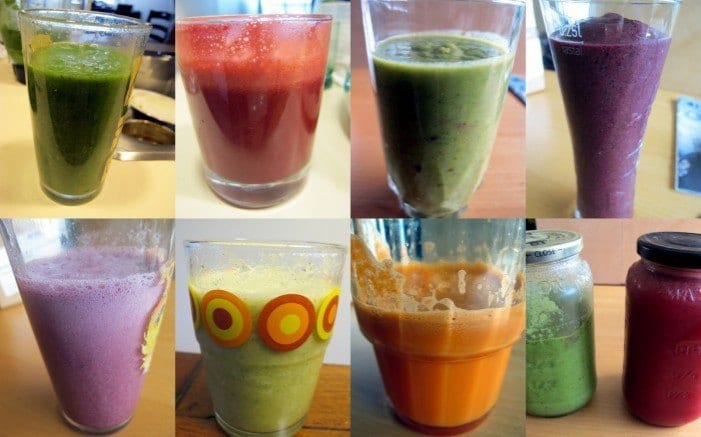
It seems I can’t surf Instagram, Twitter or Facebook these days without someone trying to hawk some kind of detox tea or juice cleanse that “really works!!!” and will help me “lose 10 pounds in one week, guaranteed!”
Come on, guys. Weren’t we paying attention in health class, or to those cheesy 90’s movies about girls abusing diet pills? Don’t we know better than to deprive ourselves of key nutrients for days on end? The thing about these band-aid solutions is that they might work in the short-term (yes, when you don’t nourish your body, you probably drop a few pounds), but they usually aren’t healthy or sustainable.
That said, here are some things you should know if you decide to do a juice cleanse.
Juicing removes the fiber from your fruits and veggies. Some people claim that juicing is a better way to ingest fruits and vegetables because it provides more nutrients. There’s no credible evidence to back this up, but studies have found that juicing removes fiber, which is pretty essential to your diet. So if you’re going to juice, try and take a fiber supplement.
It involves a lot of sugar. Diabetics or people with kidney issues probably shouldn’t juice, as the high sugar content involved in juicing can seriously affect your blood sugar levels.
You won’t get necessary fats and proteins. Some juicing plans account for small supplementary meals to make up for this, but many plans don’t. Without protein, your body cannot build up muscle. Without fat, your hair and nails can’t grow properly and your body will struggle to absorb vitamins.
Putting the weight back on is common. Sure, you’ll get skinny for the week or month that you’re cleansing. But once you return to normal eating habits (like…eating) your slightly malnourished body is going to hang on to everything it can get, meaning you’ll probably end up right back where you started.
If you’re serious about getting into a healthy lifestyle, there are other, better ways to do so. Your campus probably offers nutrition and fitness classes designed with a college lifestyle in mind. There are also a number of online resources to help you find meals that work for you, and exercise plans you can easily fit into your schedule.














-300x167.jpg)